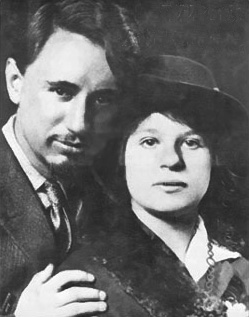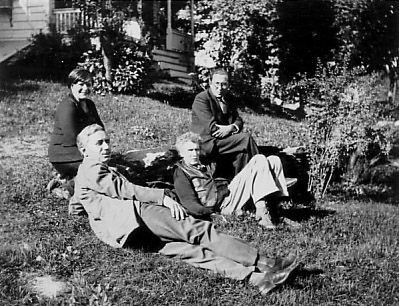 |
|
Photo courtesy Will Durant Foundation |
Will Durant (1885-1981)
and
Ariel Durant (1898-1981)
William James Durant was a historian of great distinction who reached a remarkably wide audience. His principal works were The Story of Philosophy (1926), a best-seller, and The Story of Civilization (1935-75), an 11-volume historical series described as a 'biography of mankind'. The last five volumes of the latter work was written with his wife Ada, born in Russia and known as Ariel. Its tenth volume, Rousseau and Revolution (1967) won a Pulitzer Prize. Their last book, A Dual Autobiography, was written in 1977.
Dr Will Durant's book on 'The Story of Philosophy', really a compilation of his already written Haldeman blue books and published by Simon Schuster, has had a terrific success — it's in every window everywhere and little Dr Durant is now visiting Harvard where there are 400 Philosophers collected in a meeting from all parts of the world. Next Sunday I am — for love — to help him in a Symposium to open the Labor Temple's Season subject... (Letters to His Brother Llewelyn, II, 14 September 1926).
It was Will Durant though with whom I really enjoyed debating, true and noble philosopher as he is, and I enjoyed it just as a mischievous sharp-tongued woman, free to hit at her sweet pleasure below the belt, would enjoy having a tussle with the much-enduring Socrates. I have spoken of my freedom from jealous bitterness in all these clashes between rival intelligencies, but I was nothing to Durant! I have never seen, and never shall see, as long as I live, such sublime patience, or an irony so unfaillingly sweet-tempered. (Autobiography)

Photo courtesy Will Durant Foundation
The next lecture in that familiar place (Labour Temple, in New York) that had to do with the superannuated clown of the old Shaw Circus was not by me, but on me. This is the first time in my life I have been lectured upon, and perhaps it will be the last. I need hardly say, remembering my happy days in Saxony, that it was by a German. In plain words it was by Dr. Beck, Durant's original successor at the Labour Temple. Durant, in the manner of Ferney, had fed me when I was pennyless. Beck, in the manner of Weimar, interpreted my legend. Durant is the wisest of the few Frenchmen I have loved. Beck is the most original of the many Germans I have loved. (Autobiography)
|
|